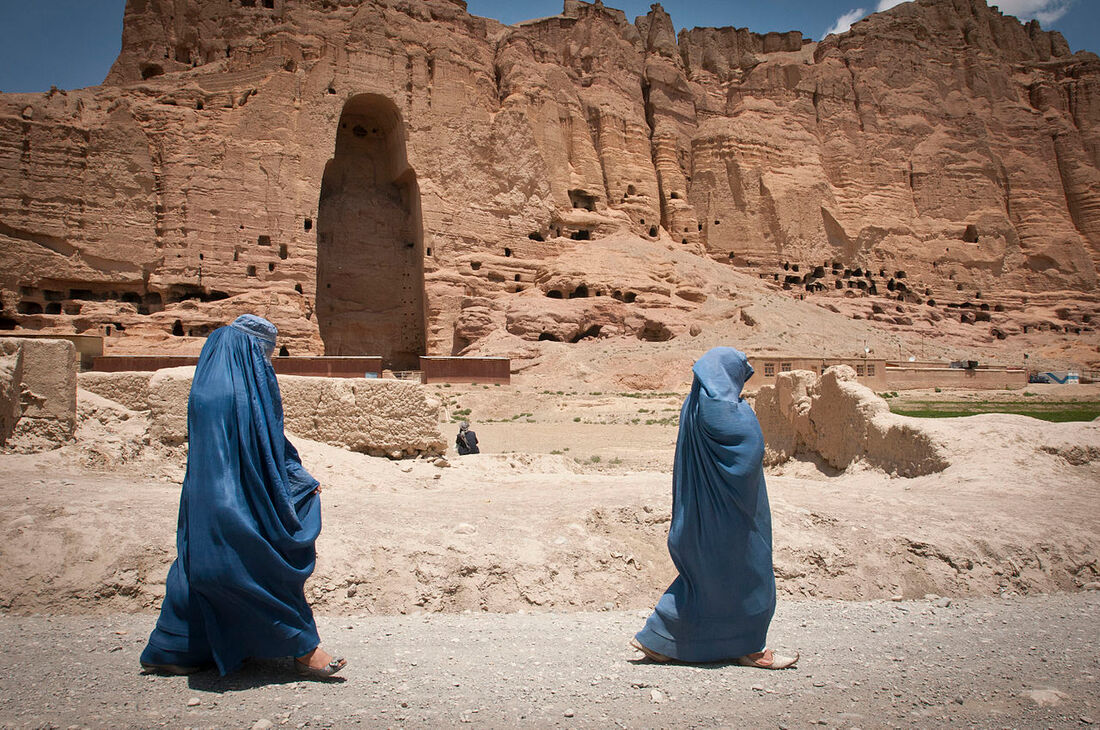 Two women walk past the huge cavity where one of the ancient Buddhas of Bamiyan, known to locals as the "Father Buddha," used to stand, June 17, 2012. The monumental statues were built in A.D. 507 and 554 and were the largest statues of standing Buddha on Earth until the Taliban dynamited them in 2001. Afghanistan. Sgt. Ken Scar / Public domain The Buddhas of Bamiyan The pair of great stone statues, taller than thirty ferengi soldiers standing each atop the other’s shoulders, if such a trick can be imagined, were guardians of our Valley for longer than my people can remember. In summer’s heat our children ran circles round the statues’ feet to make a breeze, held themselves stiff like tent pegs, then rolled in and out of the crevices between the monstrous cold stone toes Big toe, middle toe, pinky toe. The old men say their fathers’ fathers’ said the statues were faced with gold once. Gods brought from the East, then forgotten. The old women say the statues were lovers, who, for their sin, were cocooned in the sandstone cliffs. Near enough to hear the other’s heart beat but never again to touch. I wanted to see stone yearning toward stone. That was my sin. One morning I stripped off the blue burka with its eye slits that made my world dim and narrow, looked upon the golden cliffs and understood the majesty of the faceless Gods. I will carry the dishonour of my act and that light within me forever like a black lamb and a white one. In the fighting season when the Taliban came we ran with our children into the painted caves deep behind the statues. Hide what you love. They will smash it first to kill you faster. After the victory, they took our men away and declared the statues an affront to piety. The ritual cleansing of the Valley with tanks, bombs on long sticks, artillery lasted twenty-five days. When the stones of the statues were dust in our mouths and eyes they rejoiced, and brought nine fat cows to slaughter. Lottie Erikson Lottie Erikson studied English Literature at Tulane University in New Orleans. Her first job after college was as Poet-in-Residence working with institutionalized populations in Louisiana. Most of her adult life has been spent living and working in other countries as an agricultural development specialist. She retired from Islamabad, Pakistan to the mountains of North Carolina in 2017.
0 Comments
Your comment will be posted after it is approved.
Leave a Reply. |
The Ekphrastic Review
COOKIES/PRIVACY
This site uses cookies to deliver your best navigation experience this time and next. Continuing here means you consent to cookies. Thank you. Join us on Facebook:
July 2024
|



